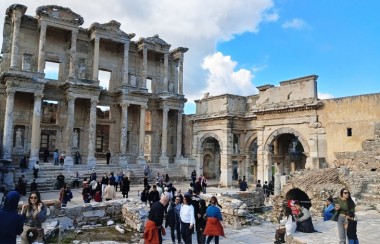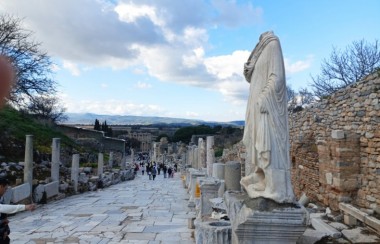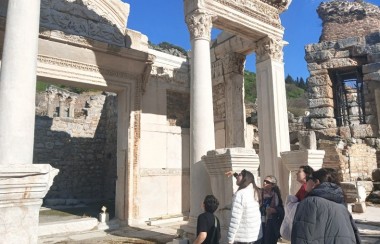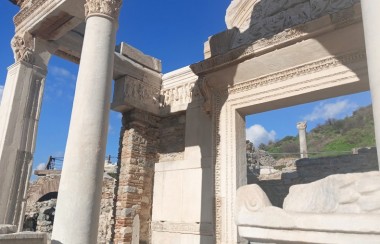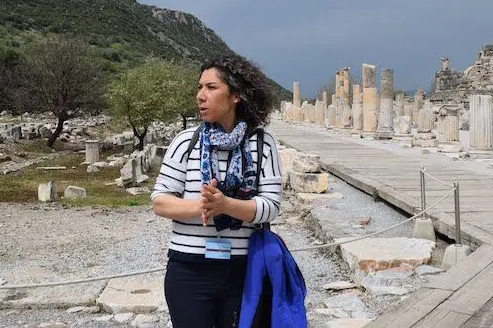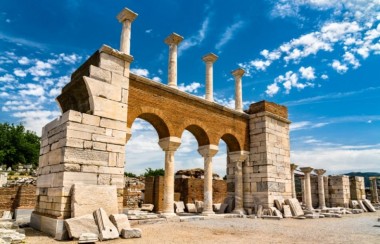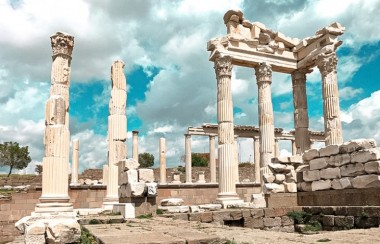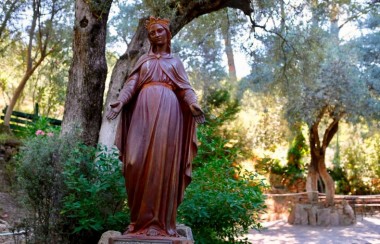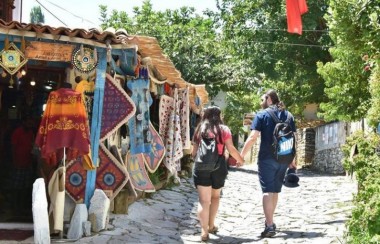Ephesus is located near the western shores of modern-day Turkey, where the Aegean Sea meets the former estuary of the River Kaystros, about 80 kilometers south of Izmir, Turkey.
According to legend, the Ionian prince Androclos founded Ephesus in the eleventh century B.C. The legend says that as Androclos searched for a new Greek settlement, he turned to the Delphi oracles for guidance. The oracles told him a boar and a fish would show him the new location.
One day, as Androclos was frying fish over an open fire, a fish flopped out of the frying pan and landed in the nearby bushes. A spark ignited the bushes and a wild boar ran out. Recalling the oracles’ wisdom, Androclos built his new settlement where the bushes stood and called it Ephesus.
Another legend says Ephesus was founded by the Amazons, a tribe of female warriors, and that the city was named after their queen, Ephesia.
Related Shore Excursions
Explore Ephesus History with our Shore Excursions .
Biblical Ephesus
Ephesus played an important role in the spread of Christianity. Ephesus is&...
Pergamum & Asklepion
The Acropolis and the Asklepion of ancient Pergamum, both listed among the top 100 historical sites...
House of Virgin Mary, Ancient City of Ephesus, Basilica of St.John
Ephesus played an important role in the spread of Christianity. Ephesus is&...
Pamukkale & Hierapolis
The Striking White Terraces Of Pamukkale Are A Hotspot For Tourists Visiting Turkey

